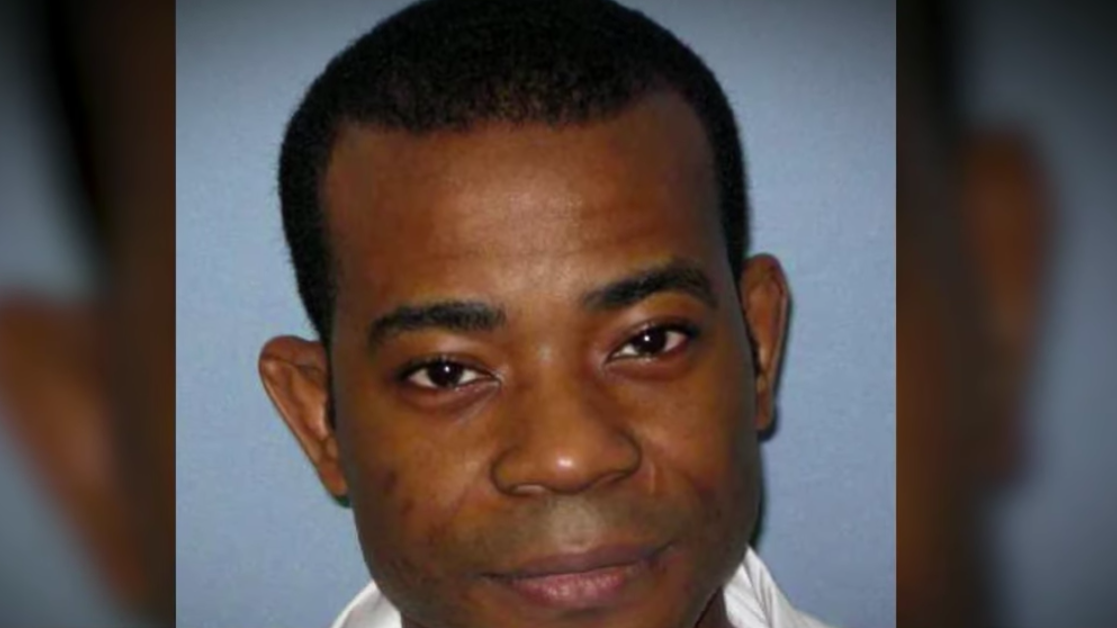An Alabama prisoner was killed by lethal injection after he was given the death penalty following massive public opposition to his execution.
Nathaniel Woods was convicted of capital murder as an accomplice in the 2004 killing of three police officers, and the wounding of another, who were shot at a suspected drug house, from which Woods and his roommate were believed to be selling crack cocaine, reports NBC.
Woods, who was 43 years old, was pronounced dead at 9:01 p.m. at a state prison in Atmore, Alabama. He had no last words but appeared to position his hands in a symbol of Islamic faith, according to the Associated Press.
Attorneys for Woods filed a motion in a federal court of appeals asking for a stay of execution. The U.S. Supreme Court had issued a temporary stay of execution for Woods, but it was ultimately lifted.
Since Woods did not pull the trigger to shoot the officers, many view him as innocent and had written letters asking Gov. Kay Ivey to change the sentence. Ivey denied a request for clemency.
Woods’ roommate, Kerry Spencer, has admitted to being the shooter and has stood by the notion that he acted alone.
In 2004, police burst into the Birmingham home where Spencer was believed to be selling drugs. According to a summary of the case in an Alabama Court of Criminal Appeals' opinion, officers were attempting to arrest Woods on an outstanding misdemeanor domestic assault warrant. Spencer believed he was under attack and began shooting at the officers when Woods said “Okay I give up,” as he was being held down. Officers Charles Bennett, Harley Chisholm III and Carlos Owen were killed, reports CBS.
In a letter delivered to Woods’ lawyer, Spencer wrote that Woods is “100% innocent.”
“I know this to be a fact because I'm the person that shot and killed all three of the officers that Nathaniel was subsequently charged and convicted of murdering," wrote Spencer. "Nathaniel Woods doesn't even deserve to be incarcerated, let alone executed."
During the trial, prosecutors argued that Woods, who was 27 at the time of the incident, lured the officers into the apartment so Spencer could kill them.
There were multiple accusations of mishandling the case and scrutiny over the treatment of Black defendants. Sources say no evidence was produced in proving Woods plotted the murder. Supporters also believe that although Woods could have taken a plea deal, he was wrongly informed by his attorneys.
"Mr. Woods did not accept this plea deal because he thought — with counsel's encouragement — that he would be acquitted of these charges because the evidence would prove that he was not the shooter that day," according to a petition objecting to his imprisonment.
Two of the officers killed were later accused by another drug dealer of protecting dealers in exchange for money, according to NBC News.
According to NBC News, in Alabama, an accomplice is still eligible for the death penalty even if they did not physically shoot anyone. It is also the only state that does not require a unanimous decision by the jury to impose the death penalty, as long as at least 10 jurors vote in favor.
.@GovernorKayIvey’s Statement on Execution of Nathaniel Woods: pic.twitter.com/IW2pUZwwie
— Reshad Hudson (@ReshadHudson) March 6, 2020
"Under Alabama law, someone who helps kill a police officer is just as guilty as the person who directly commits the crime," Ivey said. "Since 1983, Alabama has executed two individuals for being an accomplice to capital murder."
Alabama Attorney General Steve Marshall said Woods was “a willing participant” and not an innocent bystander like many have said. He was pushing for his execution to move forward. He cited Michael Collins, the only surviving officer from the incident. Marshall said Woods led officers into the home so Spencer could shoot them.
Attorney General Steve Marshall Statement on the Execution of Cop-Killer Nathaniel Woods https://t.co/j5ZHSMgHJ0
pic.twitter.com/HnIdZ83cOh— AG Steve Marshall (@AGSteveMarshall) March 6, 2020
According to the emergency appeal, Woods “steadfastly maintained his innocence in any plan to entice the three officers into the house that day."
“‘He is actually innocent,” Woods’ sister, Pamela Woods, told reporters outside the prison earlier Thursday. “Kerry Spencer the actual shooter has stated many times that he did it on his own with no help for anyone.”
The son of civil rights leader Dr. Martin Luther King Jr. is one of several notable figures who have spoken out against Woods’ death penalty sentence.
"In the case of Nathaniel Woods, the actions of the U.S. Supreme Court and the Governor of the State of Alabama are reprehensible, and have potentially contributed to an irreversible injustice," Martin Luther King III wrote in a statement following the execution. "The rush to execute Mr. Woods makes a mockery of justice."
No execution date has been set for Spencer. His appeals are still pending.
